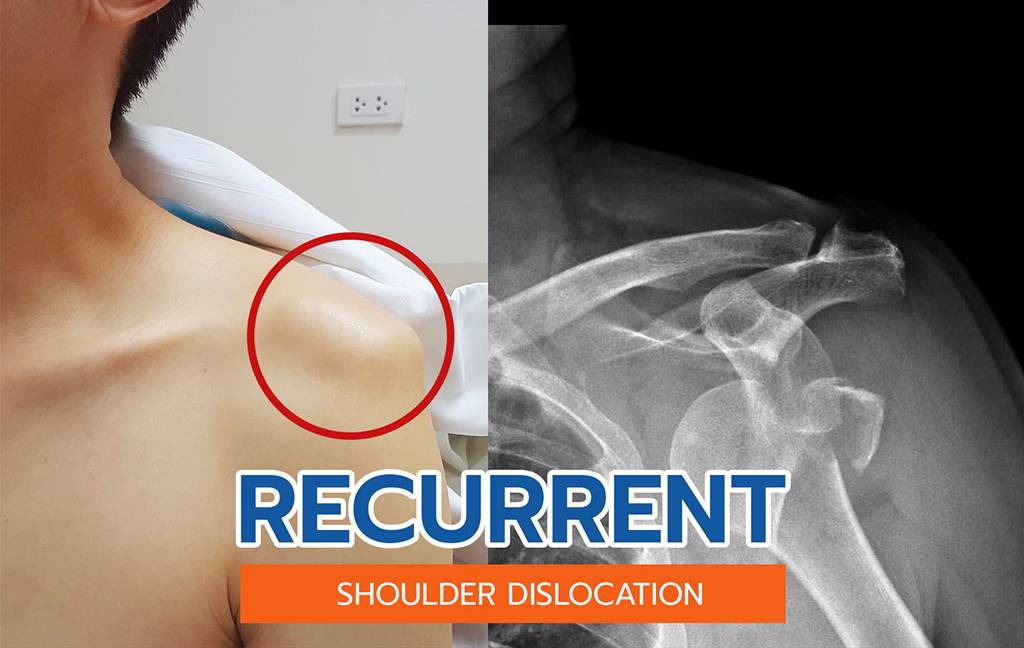
Shoulder - Arthroscopy and Sport Injury Specialist in Mumbai
Recurrent Shoulder Dislocation
Dr. Aditya Pawaskar is one of top notch shoulder arthroscopy Surgeon and Sports Injuries Specialist in Mumbai. With his extensive experience in orthopedics, he provides excellent care and effective treatments for patients with shoulder and knee problems.
Recurrent shoulder dislocation, also known as recurrent shoulder instability, is a condition where the shoulder joint repeatedly dislocates or partially dislocates (subluxates) from its normal position. This can be a result of various factors, including trauma, congenital issues, or ligament laxity. Recurrent shoulder dislocations can lead to pain, instability, and limited shoulder function.
Causes:
- Trauma: A previous shoulder dislocation can damage the ligaments and structures that support the joint, making future dislocations more likely.
- Ligament Laxity: Some individuals naturally have looser ligaments, increasing the risk of shoulder instability.
- Anatomic Factors: Certain anatomical variations or abnormalities can predispose individuals to recurrent shoulder dislocations.
Treatment:
Surgery may be considered if conservative measures fail or if the instability is severe. Surgical options include:
- Bankart Repair: Repairs torn or stretched ligaments and reattaches them to the bone.
- Latarjet Procedure: Involves transferring a piece of bone from the shoulder blade to the front of the glenoid to enhance stability.
- Arthroscopic Stabilization: Minimally invasive surgery to repair and tighten the ligaments through small incisions.
- Capsular Shift: Tightens the loose joint capsule to improve stability.
- Remplissage: Addresses Hill-Sachs lesions by filling the defect with tissue to prevent engagement of the humeral head.
Sports Prone to Recurrent Shoulder Dislocation and Injury Risks:
Recurrent shoulder dislocation is often associated with sports that involve frequent overhead motions, sudden impacts, and potential for falls. In India, the following sports may be linked to a higher risk of recurrent shoulder dislocation:
- Cricket: Fast bowlers and players involved in throwing actions may be prone to recurrent shoulder dislocations.
- Volleyball: Frequent overhead hitting and blocking in volleyball can increase the risk of recurrent shoulder dislocation.
- Basketball: Jumping, sudden stops, and potential for collisions in basketball may contribute to recurrent shoulder dislocations.
- Gymnastics: The intense upper body movements, weight-bearing on the shoulders, and potential for falls in gymnastics can pose a risk.
- Wrestling: Wrestling, with its intense physical contact and potential for awkward falls, may contribute to recurrent shoulder dislocation.
- Football (Soccer): The dynamic nature of football, with sudden stops, changes in direction, and physical contact, can increase the risk of shoulder dislocations.
- Handball: Overhead throwing actions and potential collisions in handball may pose a risk of recurrent shoulder dislocation.
- Badminton: The repetitive overhead motions in badminton, especially during serves and smashes, can contribute to shoulder issues.
- Tennis: The repeated overhead serving and strokes in tennis may lead to recurrent shoulder dislocations.
- Kabaddi: Frequent tackles and abrupt directional changes in Kabaddi can pose a risk of recurrent shoulder dislocation.
Consult with Dr. Aditya Pawaskar, a Sports Medicine Specialist in Mumbai, to determine the most appropriate treatment for Knee & shoulder injuries based on individual cases and the latest medical advancements.
